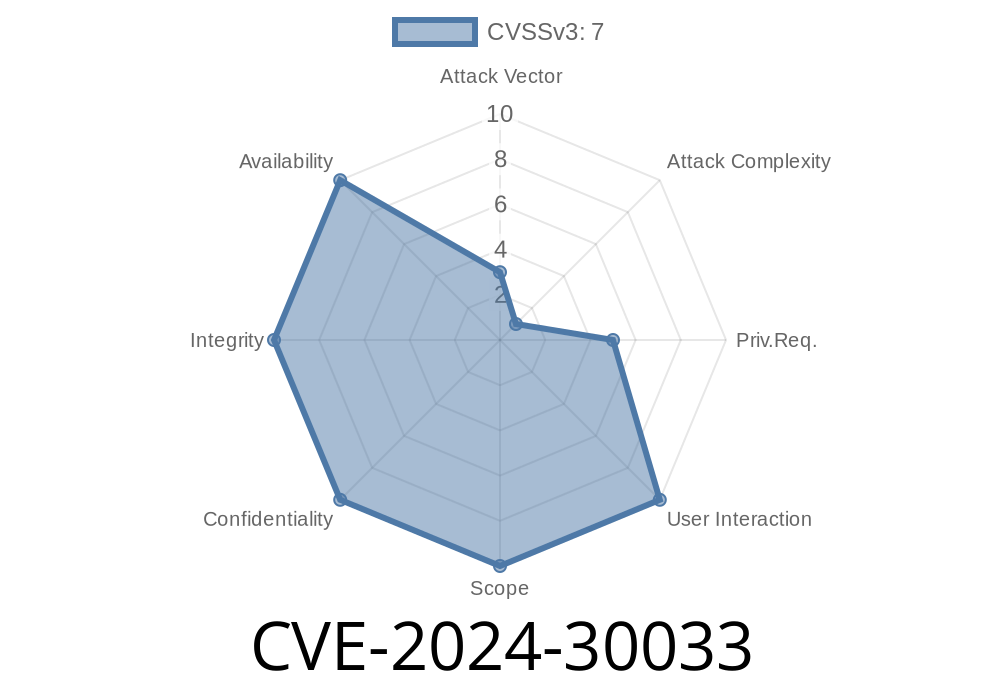CVE-2024-30033 is a vulnerability found in the Windows Search Service that could allow a local attacker to gain elevated privileges — basically, giving them more control over a Windows system than they should have. This flaw was officially disclosed by Microsoft as part of their June 2024 Patch Tuesday. It’s important because Elevation of Privilege (EoP) bugs like these can be used together with malware for full system takeover.
Learn more from the Microsoft Security Guide.
How Does the Vulnerability Work?
The vulnerability involves how Windows Search Service handles certain objects in memory. If exploited, an attacker who already has restricted access (like a standard user) on the machine might run specially crafted code that tricks the search service into running their code as SYSTEM — the highest Windows privilege.
To exploit this, someone would need local access: meaning they already logged into the PC, either physically or via remote desktop.
Proof of Concept (PoC) Example
*This code is for educational use only. Running it on any computer without permission is illegal.*
Below is a simplified conceptual PoC to show how an attacker might try to interact with the Windows Search Service. The real exploitation is more intricate (often involving detailed studying of service behavior and memory), but here's how someone might abuse a vulnerable service running with SYSTEM privileges:
import os
import ctypes
import subprocess
# Trying to start a shell as SYSTEM (not actual exploit, for illustration)
def try_privilege_escalation():
# Only works if called from a vulnerable context!
try:
# This would normally require SYSTEM privileges
output = subprocess.check_output("whoami", shell=True)
print(f"Current user: {output.decode().strip()}")
# Real exploit would inject or execute SYSTEM-level code here
# WARNING: Do not use for unauthorized access
except Exception as e:
print(f"Error: {e}")
if __name__ == '__main__':
try_privilege_escalation()
Note: Actual exploitation involves much more: like triggering the vulnerable code path via crafted database objects, or manipulating indexed content to hijack the service.
If exploited, attacker gains SYSTEM privileges.
Attackers can combine this with malware droppers or phishing to fully compromise machines, install ransomware, or read secret files.
How to check if you’re exposed
- If you're using an unpatched version of Windows (Windows 10/11, Windows Server 2016+), and your Windows Search Service is running (which it does by default), you’re at risk.
Go to Settings > Windows Update > Check for updates.
- Or, download the patch directly from Microsoft’s Security Update Guide.
References
- Microsoft Security Update Guide: CVE-2024-30033
- Patch Tuesday, June 2024 Recap (Krebs on Security)
- CERT/CC Note on CVE-2024-30033
- Official Microsoft Windows Search Service Docs
Conclusion
CVE-2024-30033 is a reminder that even common Windows features can hide serious security risks. If you administer Windows systems, patch now to keep attackers from gaining SYSTEM access through this search service vulnerability. Always pay attention to local EoP bugs — today’s local exploit could be tomorrow’s ransomware.
Timeline
Published on: 05/14/2024 17:17:05 UTC
Last modified on: 06/19/2024 20:58:43 UTC
